Review: Encore Performing Arts Invites You to Come to the CABARET at Osceola Arts
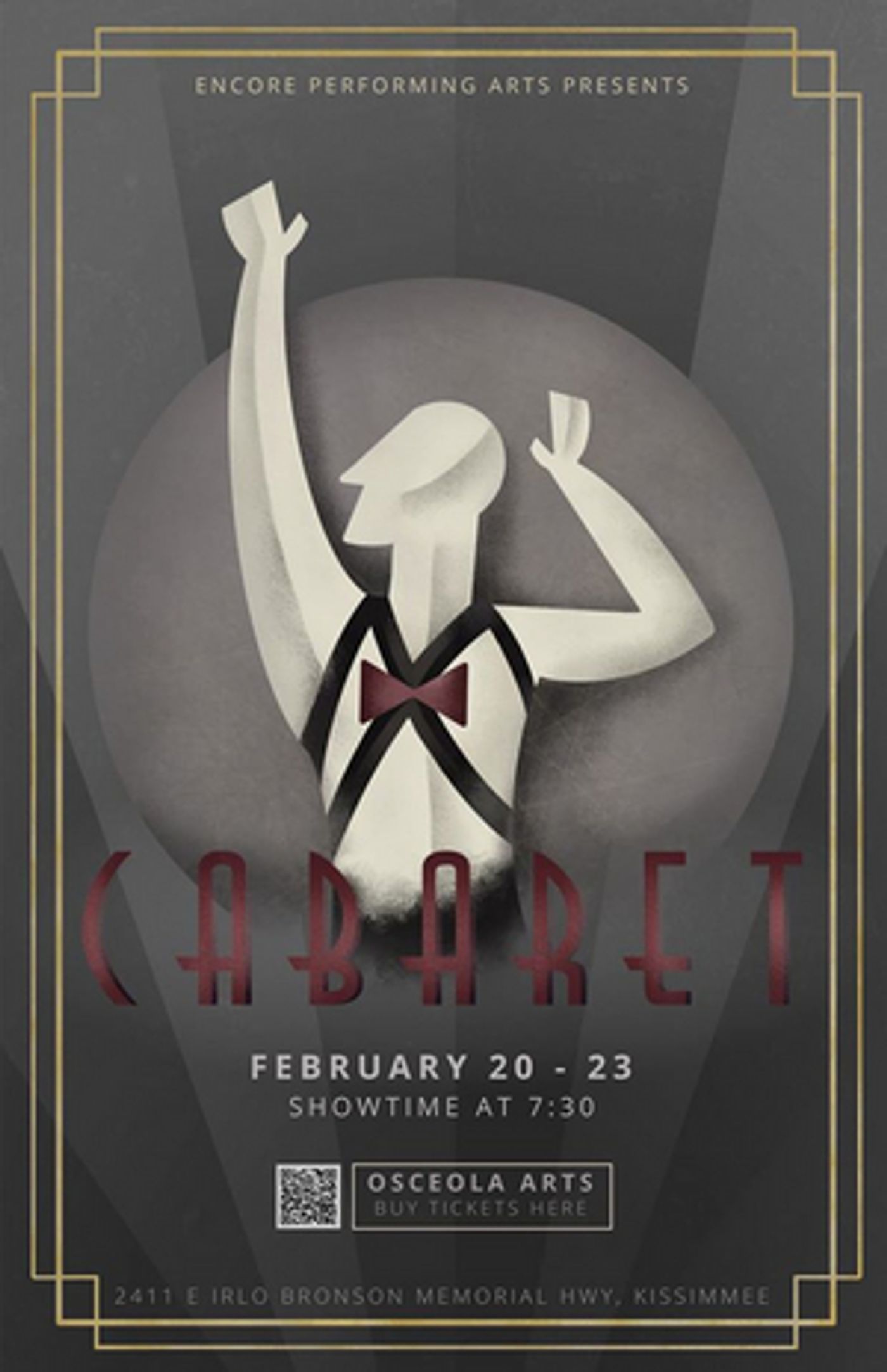
The last time I attended a production at Osceola Arts, the stage had been transformed into 1899 New York City for a production of Newsies. Last night, I returned to Osceola Arts, but now found myself transported thirty-two years later and over four thousand miles eastward to Germany, specifically the Kit Kat Klub of Berlin as immortalized in the 1966 musical CABARET. Although we're now ninety years removed from the Weimar Republic, CABARET still feels timely as ever. Given what regime succeeded the Weimar Republic, maybe that should not be good news. Yet that is why we need shows like CABARET: reminders that the apathy and distractions we think help us get by should actually not be our only outlet for life and livelihood. The Kit Kat Klub becomes less a physical place than it does a state of mind, one that comments upon the action of the musical, but does so without the repercussions and consequences of the narrative, at least until the bitter end.

For the uninitiated, CABARET is the third iteration of Christopher Isherwood's memoirs from living in German, rightfully the most celebrated and revered version of his semi-autobiographical story about a young writer who came to Berlin for the boys but stays for the girl. A collection of short stories entitled Goodbye to Berlin gave way to John Van Druten's 1951 play I Am a Camera (itself turned into a 1955 film of the same name), before being adapted once more as a Broadway musical under the most well-known of names: Cabaret. Opening in 1966 to rave reviews, the stage musical was later adapted into a 1972 feature film that all but swept the Academy Awards with eight Oscars (just barely missing Best Picture and Best Screenplay), and plenty of revivals both stateside and abroad. This weekend, CABARET sees new life thanks to Encore Performing Arts, a theatre company whose caravan-like tour of central Florida theatres now brings them to Osceola Arts in Kissimmee.
Every production I've seen from Encore always has innovative and abstract set design, whether it be the expansive human pyramid of Aida or the skewed perspective of a stage in 25th Annual Putnam County Spelling Bee. Often, these Encore sets are conceived and designed by Cliff Price, who continues that role here. I must say, it's probably his most versatile set, especially given the work space he's given at Osceola Arts. Part and parcel of any production for CABARET involves making the audience feel more involved, whether it be standard mirror on the stage of the original Broadway production or Encore's rendition: the black box theatre literally becomes the Kit Kat Klub. Drinks at the ready, spotlights on the showgirls, front-row seats for prime viewing.
In addition, the audience plays the part of patrons of the club, right down to guests sitting at featured tables on the stage itself, reserved in advance of course. Performers make sure to interact with these particular tables, but likewise, the close and intimate nature of Osceola Arts' black box theatre means prolonged eye contact with most every member of the audience. I locked gazes with a few performers throughout the night, feeling somewhat like a guilty voyeur for doing so. One particular Kit Kat Klub dancer always stared back with a pair of dead eyes true to her character, a poor German woman I expect who knew this would be the only way to make money in these trying times.
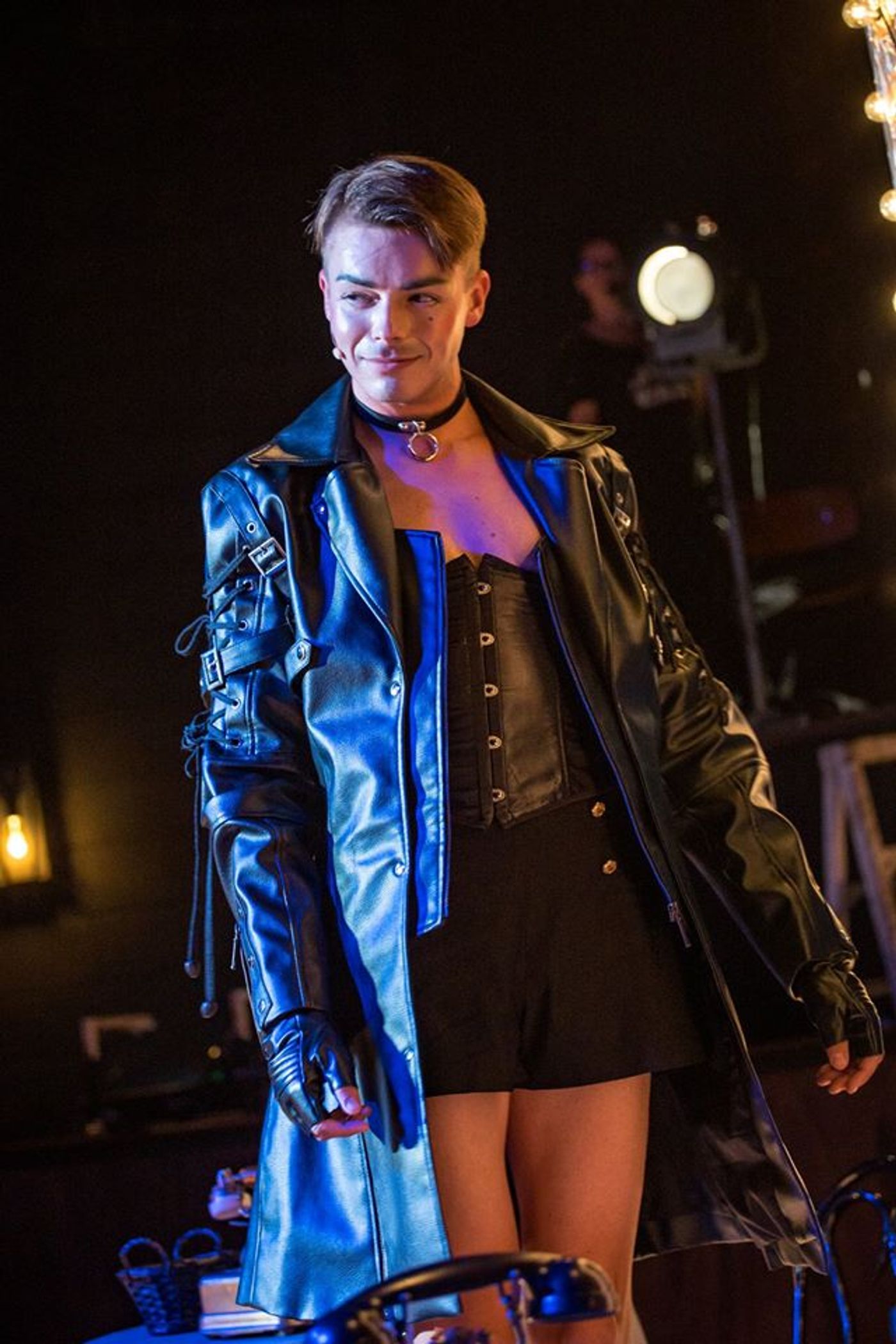
Naturally, this interaction extends to our emcee for the evening, played by Encore newcomer Joel Swanson. His cherubic face betrays the more debaucherous nature of his approach to the Master of Ceremonies, someone cut more from the leather of Tim Curry's Frank-N-Furter than the cloth of Joel Grey's black tie interpretation. Swanson relishes in the role, every movement, every tic, every stare. He gives an immeasurable delight to each number, even when his character is not the focus. Watching his facial reactions to Cliff and Sally's "Perfectly Marvelous" duet felt more entertaining than their actual song. He likes the life he's living and living the life he likes. Whoops, I momentarily went to Chicago, another Kander & Ebb musical.
Actually, Chicago would be an apt comparison to this CABARET. The sparsity of the stage feels very much like we're inside Sally Bowles' head rather than Roxie Hart's. Whether or not this was a conscious choice of director Michael Rodgers and the production team, it helped give the Kit Kat Klub that dreamlike atmosphere that even made the "real-life" scenes feel surreal and otherworldly. Likewise, the costumes by Tommy Price initially favor leather and lingerie more than the traditional, period-specific clothes. The costumes also feature as a commentary towards the growing drama of the piece. In the beginning, many of the dancers are more or less in their skivvies, giving us enough of the flesh to appreciate, but covering up enough to keep the audience wanting more.
The kind of carnal pleasure of this guilty viewing gradually gets covered up in each character as the play goes on. From night garments to leisure wear to the signature Gestapo overcoats, the more these folks cover up, the less they expose of themselves in favor of the homogeny within the Nazi Party. By the play's end, any deviations to this either escape or are summarily dealt with. It's chilling, as folks who we think we've seen all of suddenly have a new, disturbing layer, all because they put on a coat. I was not prepared for some of the actions from these formerly brazen dancers by the play's end.
Of course, the unexpected left turn in CABARET's story is the reason why this story succeeds. We've allowed ourselves to get comfortable in the ease and pleasure of the Kit Kat Klub that when the realities of the world storm in, it makes for a harsh wake-up call to all the players involved. The one who resists the reality most is Sally Bowles, played by another Encore newcomer, Meg Stefanowicz. She gives Sally a sense of guileless naiveté, a woman who doesn't care about the world unless it affects her directly, best embodied in her final song, "Cabaret." An earworm of a tune, and one often sung with such joyful reverie, the way Stefanowicz delivers the piece, you'd think she's singing for her life. Coming at the end of the show, you can sense that she's clinging desperately to a life that will change, but refuses to give it up. Stefanowicz is a powerhouse in every number, but fully earns it for her character by the end.
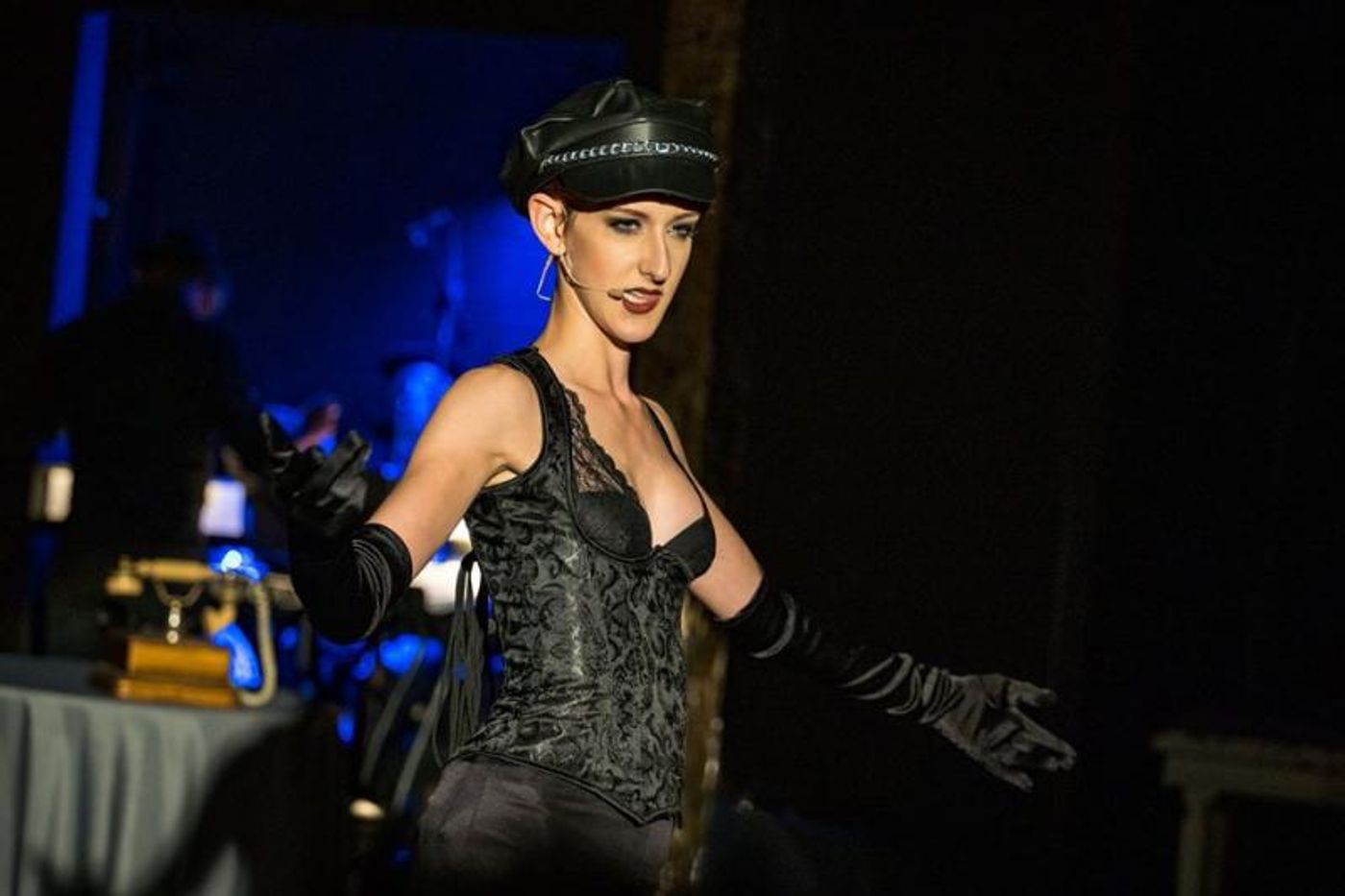
I had expected Stefanowicz to be the only powerhouse diva on the stage (well, after Swanson's emcee). But both had a run for their money from another Encore newcomer: Lexie Wolfe as Fraulein Kost. Wolfe normally plays the sweetly innocent Nemo in Disney's Animal Kingdom's Finding Nemo musical. Trading in the gimpy fin for a skimpy teddy certainly was eye-opening, but her performance as Kost impressed me most among the cast. She turns what could just be a comic relief character into a formidable figure, as she knows the power of her words. Wolfe provides that sweetly innocent voice when we hear the chilling "Tomorrow Belongs to Me" on a record, but when she turns it into the power ballad of nationalism, I knew Sally Bowles had some competition. Honestly, I would watch the two ladies duke it out aurally if I could.
Countering the relative newness of Swanson, Bowles, and Kost, this production of CABARET also sees such veterans as Matt Warfield playing the amiable Ernst Ludwig and Michael Angelini Jr. as the titular Camera of I Am a Camera: Cliff Bradshaw. Warfield's Ernst has a charm that makes you not realize his true colors, and almost makes you wish they weren't his. He brings a humanity to a role and a character that society (rightfully) tells us to villify. Likewise, Angelini's Cliff offers that necessary angst as his own inner self must resolve the conflicts between what's morally right and what he wants. I still can't get over how at times he could just look at Sally and you can sense the shame, betrayal, and utter despair he felt.
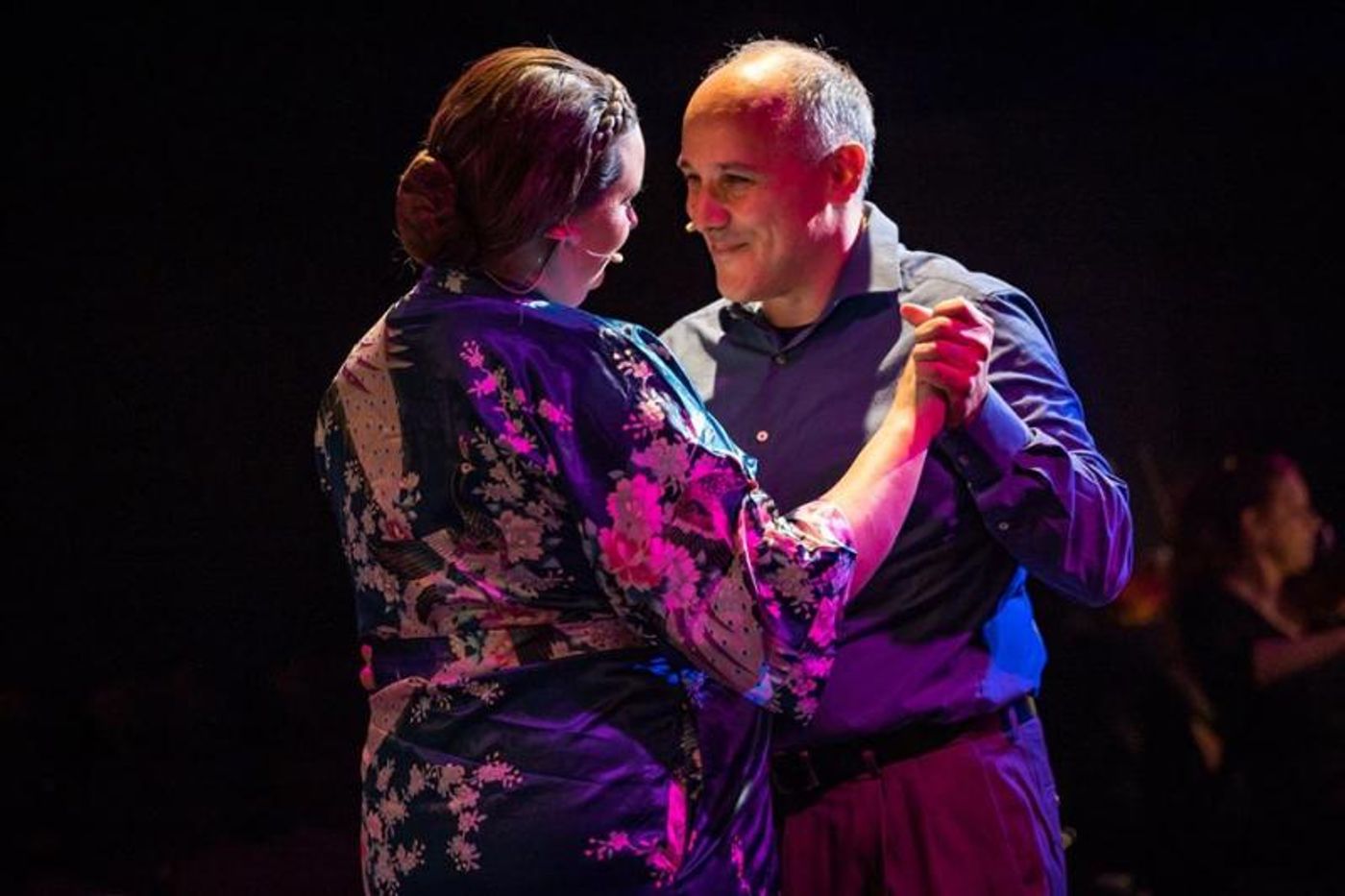 Of course, if any characters should embody utter despair in this musical, it's Fraulein Schneider and Herr Schultz, masterfully portrayed by Candice Casey and Robert Laurita. Having only known the 1972 film, in which Schneider and Schultz were replaced by Natalia and Fritz, I could better appreciate the "newness" of Schneider and Schultz's story. Their tender love story allows for a more grounded, traditional romance to play out between the two elder characters - people who thought love might have passed them by, but are delighted to find it's found them again. Casey and Laurita give both characters the much-needed dose of reality for the audience, these are the most human of the characters on stage. They could be our own landlord upstairs or neighbor across the hall. Watching them felt like I was staring through the peephole of my door, witnessing a growing affection and fondness develop between two people.
Of course, if any characters should embody utter despair in this musical, it's Fraulein Schneider and Herr Schultz, masterfully portrayed by Candice Casey and Robert Laurita. Having only known the 1972 film, in which Schneider and Schultz were replaced by Natalia and Fritz, I could better appreciate the "newness" of Schneider and Schultz's story. Their tender love story allows for a more grounded, traditional romance to play out between the two elder characters - people who thought love might have passed them by, but are delighted to find it's found them again. Casey and Laurita give both characters the much-needed dose of reality for the audience, these are the most human of the characters on stage. They could be our own landlord upstairs or neighbor across the hall. Watching them felt like I was staring through the peephole of my door, witnessing a growing affection and fondness develop between two people.
Rounding out the cast are a bevy of talented Kit Kat Klub dancers: Jerrad Chandis Aker (Herman, Max), Meagan Allen (Helga), Ben Campbell (Victor), Christina Healey (Frenchie), Erin Helvering (Texas), Landon Jackson (Bobby), Jenaan Maali (Rosie), Liza Mae (Lulu), and Jonathan White (Hans, Rudy, and the "If You Could See Her" Gorilla). In a musical like CABARET, the lead characters are so clearly defined and expertly portrayed that the ensemble might get lost in the shuffle. However, and I think this can be traced back again to the small and intimate nature of the Osceola Arts black box, this ensemble felt very much like individual characters of their own. I imagine each one had their own backstory, their own reason for joining the Klub, and their own justifications for leaving it. It's an unspoken history that clearly only exists in my head, but this talented chorus line of dancers here felt very much like the silent witnesses to history rather than generic background players.
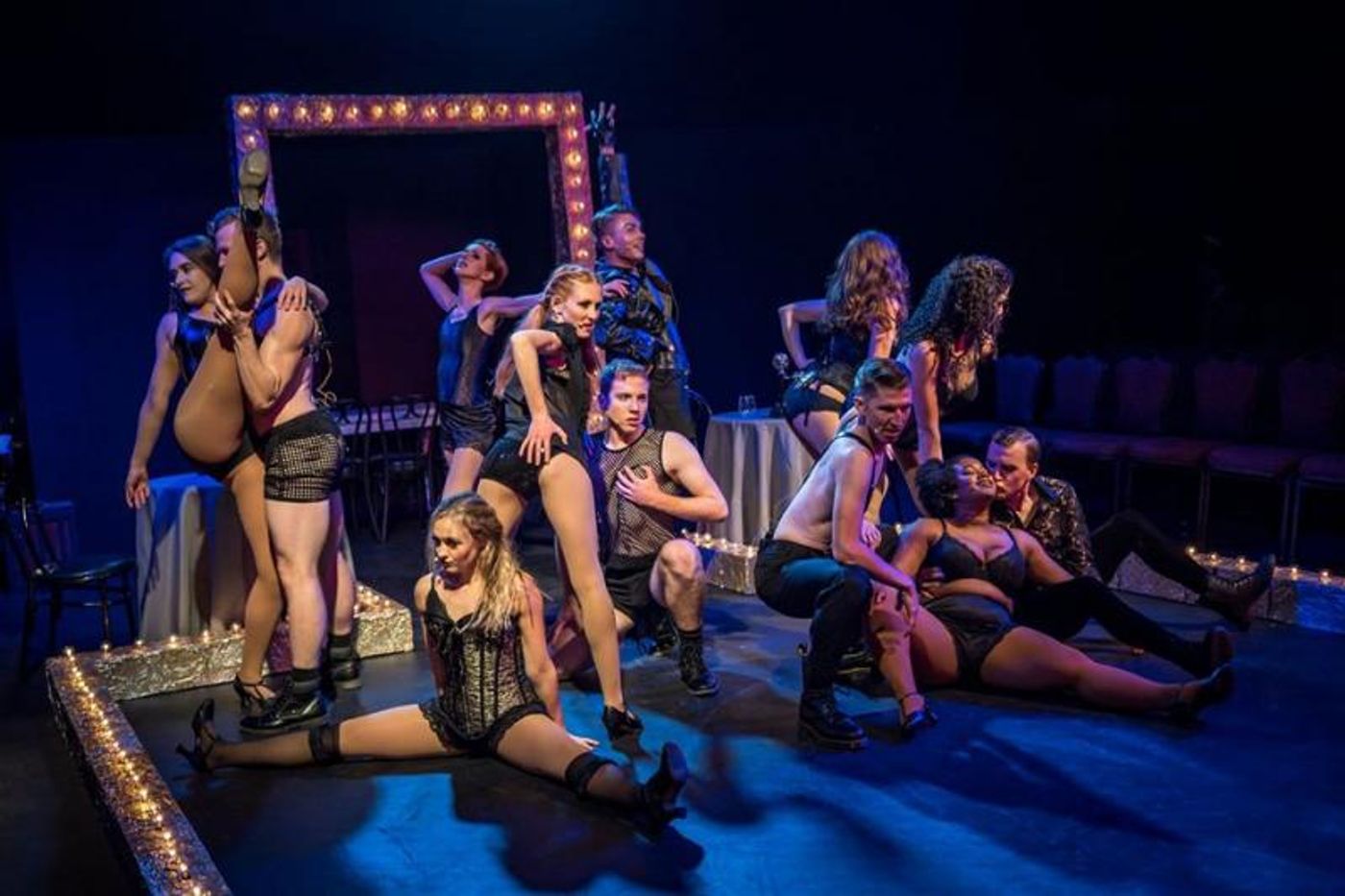
As I mentioned earlier, we're ninety years removed from the Weimar Republic, whose economic crisis and democracy collapsed when the National Socialist German Workers' Party took over. Imagine that. Three or four generations removed from one of the deadliest and most tyrannical governments in the world. The atrocities the party committed, the war it started, the lives it destroyed, everything this party stood for continues to have after-effects and consequences to this day. Whenever we look back on this, we can't help but wonder how it could have been prevented, why didn't anyone stop it. CABARET offers one possible answer, which keeps it relevant through the passage of time: we get distracted and we'd rather ignore the signs.
Berlin in the Weimer Republic was an intellectual's paradise, a place where art and culture thrived even if people were dying on the streets and jobs were non-existent. The paradoxical nature of its aesthetic decadence versus its realistic nightmare of living made this dreamlike city too good to be true. And yet CABARET celebrates the dream over the reality, because it's the dream that people want to remember, but the reality they will never forget.
The nature of every CABARET song performed within the Kit Kat Klub comments on the story at play. But it's a double-edged sword, as the delivery of each song's commentary often comes in the distraction through the spectacle, the performance. It's up to the audience to not just be entertained by the spectacle, but be enlightened by the message. And that, at least for me, is the genius of CABARET. It's not enough to just enjoy this musical - and Encore Performing Arts' rendition of it - for its technical achievements, bravura performances, and scintillating sexiness. We have to think about the big "so what" of it all, its raison d'etre.
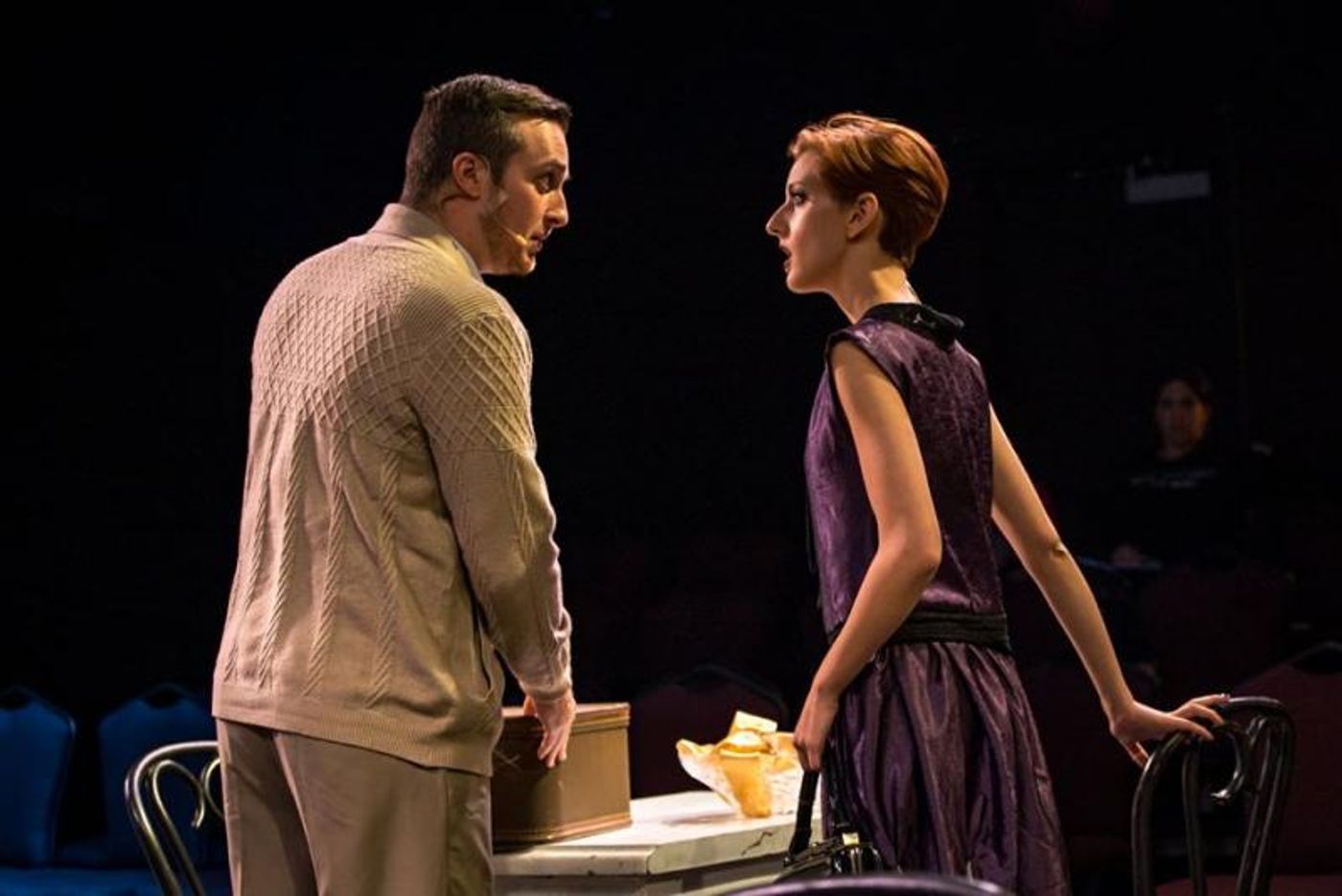
This is possibly the most political musical of all time, simply because its characters try to do everything to ignore the politics. It's embedded within their personalities, with lines like "Politics? What does that have to do with us?" Yet these very politics inevitably change their lives. CABARET has historical roots in Weimar Germany, but the message is timeless: the thrills we pursue in life should not impede upon our moral duty to our fellow man. Whether we see that as politics or the innate goodness of human nature, how we choose to morally support our fellow man is a reflection on our own character. Do we ignore it like Sally Bowles? Do we run away to America like Cliff Bradshaw? Maybe give up and accept the inevitable liek Fraulein Schneider? Or do we hope it gets better in the next election like Herr Schultz? There's no clear answer, because every single character approaches their moral responsibility based on their own moral history. And CABARET reminds us that such things are not so black and white.
It's been five years since CABARET was last performed on Broadway. Local and touring productions help keep the story alive, and for one weekend in February, central Florida has the great privilege of witnessing such masterful storytelling on the stage thanks to the talented artists of Encore Performing Arts. I never can find enough words to properly emote how much I love and enjoy their productions. They are the true embodiment of ars gratia artis, art for art's sake. Everyone involved in the production donate their time, they volunteer their services, because they know they are making art that the people will enjoy. This is their way of giving back to a community that continually has supported them - whether it be in theme parks or higher education or other local theatrical companies. More folks deserve to see these limited-time-magic productions, which never run long enough for my liking, but are always worth every minute spent in that darkened theatre. At last report, tickets for this weekend's showings of CABARET are sold out, but if, by some miracle, a few seats open up before its closing show on February 23, you can purchase tickets by clicking here.
Photos by Tiffany Bagwell, used with permission.
Reader Reviews
Videos

